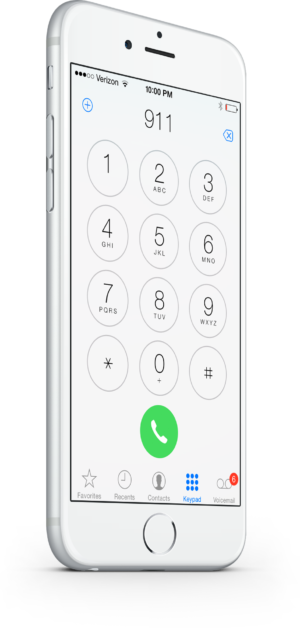When to Call 9-1-1
9-1-1 is to be used ONLY in emergency situations. An emergency is any situation that requires immediate assistance from police, fire or EMS.
If you are ever in doubt of whether a situation is an emergency you should call 9-1-1. It’s better to be safe and let the 9-1-1 call taker determine if you need emergency assistance.
What to Tell the Dispatcher
1. Give your location – It is important for callers to provide the exact location of the emergency—especially when calling from a wireless phone. There are many instances when the 9-1-1 call center does not receive cellular location information. By providing the exact location, it will ensure that the emergency response is dispatched to the exact location of the emergency.
2 . Always stay on the line.
When callers hang up, it could mean that something has gone wrong, so 911 call takers will attempt to call back. A hang-up can delay emergency assistance and tie up 911 lines longer than necessary.
3. When calling 9-1-1, always answer the questions.
It is not unusual for callers in crisis to become frustrated or fail to see why operators’ questions are important. By asking questions, an operator is able to discern important information that will result in the correct emergency response personnel being dispatched.

What to Do While Waiting for Emergency Personnel to Arrive
If the emergency operator gives you specific instructions, remember them and carry them out. If someone else is with you, send him or her to meet the ambulance.

